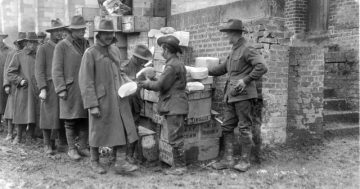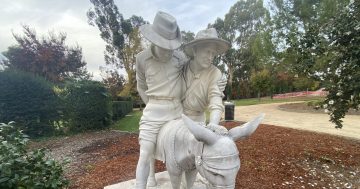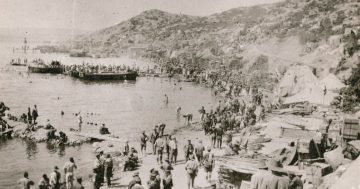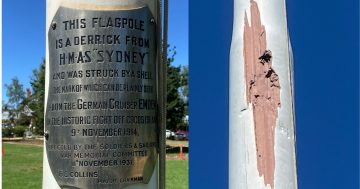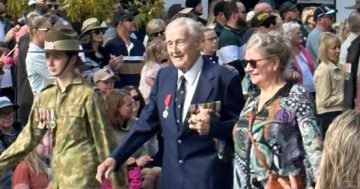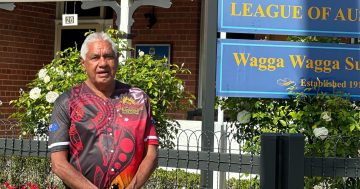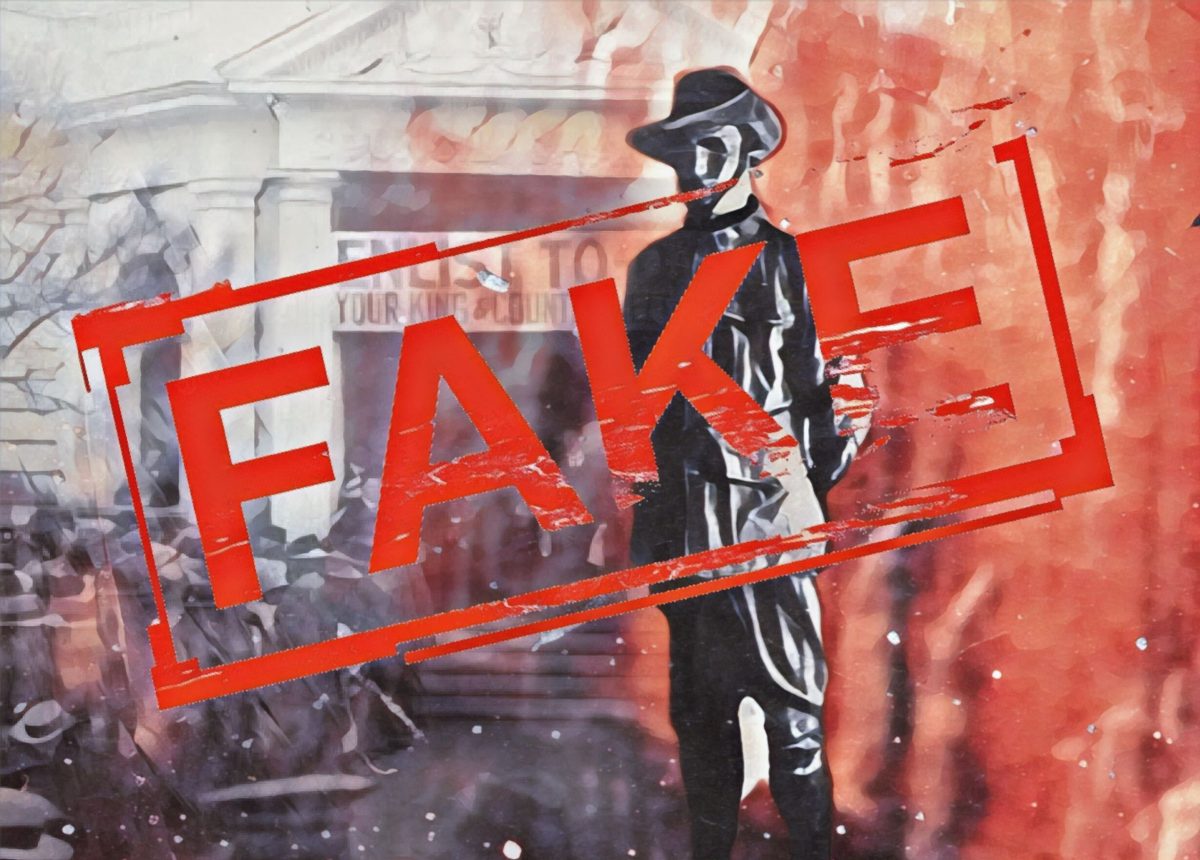
Wagga’s fake Anzac. Image: Chris Roe.
As we prepare to honour the men and women who have donned a uniform to serve in our armed forces, we thought we’d look back on the curious tale of a “rogue and a vagabond” who back in 1918, was caught out embellishing his military record to receive money and favours.
Today, impersonating a soldier is known as ‘stolen valour’ and YouTube is filled with videos of service men and women publicly calling out fakes whose insignia, medals and fatigues don’t add up.
The wounded veteran scam is as old as time and in November of 1918, just as peace was being declared on the Western Front, Charles Clifford McMullen was charged with obtaining money and assistance by making “certain misrepresentations”.
McMullen pleaded not guilty and conducted his own defence in the Wagga Police Court but it quickly emerged that the case was not quite as straightforward as it appeared.
A second charge, made under the defence act, was withdrawn when it was revealed that the accused had briefly served in the AIF and was technically a returned soldier and entitled to wear a uniform.
The suspected scam had been uncovered on Armistice Day (11 November) when recruiting Sergeant Frederick J Bohm encountered McMullen on the street “in the uniform of a sergeant of artillery with the colours of the 1st Division”.
Appearing as a witness for the prosecution, Bohm said that McMullen had made a public speech at the railway station during the celebrations in Wagga and his right sleeve hung empty and he walked with a stick to support his “lame” left leg.
“Well, old chap, how’s it going?” asked Bohm as he passed the limping digger.
“‘Not too good,” came the reply.
But as Bohm brushed against him he realised that McMullen was not as wounded as he appeared.
“Why, you’ve got your arm! I thought you had lost it,” Bohm declared grabbing hold of a limb hidden beneath his coat.
“‘It’s no good to me,” replied McMullen, “I am to have it amputated along with my leg.”
With his suspicions aroused, the sergeant began asking around and learned that McMullen had indeed been telling people that he was missing his arm and was soon to have a second operation to remove his lame leg.
His story was that he had lost the arm at the Battle of Passchendaele and his leg had suffered severe shrapnel wounds.
Using a card that proclaimed him an “original Anzac”, he had received money, clothes and accommodation from kindhearted citizens, including from the All Nations Hotel where the publican’s daughter Kathleen Carmody had been prevailed upon to cut up his food for him each day.
McMullen also reportedly told a Mr Proctor that he had been nursed by his sister in Cairo and “borrowed” £1.
A couple of weeks later, Bohm again encountered McMullen on the street and bailed him up, interrogating him closely about when he enlisted and where he trained.
McMullen insisted that he was “an original Anzac” and had trained with the artillery at Mena in Egypt where he was posted to 3rd Battery.
As Bohm had also been in Mena at that time, he continued to press him about details of the camp and the local entertainment and was not impressed by the vague answers he received.
“I’m satisfied that you are a liar!” he pronounced, dragging the hapless McMullen into the Wagga Hotel where he proceeded to call a fellow veteran sergeant named Mulholland who he knew to have been “an original Anzac of the 3rd Battery”.
Mulholland confirmed Bohm’s suspicions, saying that he had never heard of McMullen and the fake artilleryman gave in and agreed to surrender to police, saying “The game is up!”.
The two genuine sergeants, Bohm and Mulholland manhandled McMullen off to the police station where they stripped him of his uniform and revealed, “that both arm and leg were perfectly sound and that McMullen had a large leather casing around the left leg to keep it stiff”.
Under cross-examination by the accused, Bohm admitted that he may have used “strong language” at the time of the arrest but didn’t recall giving him a black eye.
As the details of McMullen’s ‘service’ emerged, it was discovered that he had enlisted in January of 1916 to avoid facing a forgery charge and, after a brief stint training in Egypt, was discharged and sent home due to “defective eyesight”.
While he attempted to argue that he had never claimed to have seen battle, had been told by doctors to brace his leg and bind his arm and had intended to pay everyone back, the magistrate was not impressed.
In delivering judgment, he warned the community against accepting returned soldiers without any kind of credentials and McMullen was found guilty of “most despicable” conduct and sentenced to six months with hard labour.







